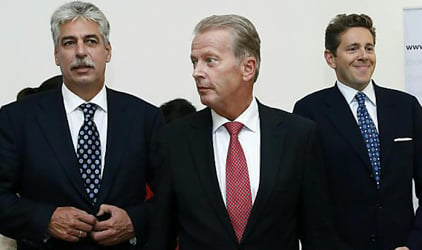The 60-year-old management expert and management consultant is well-qualified for the job, according to observers and fellow party members. As the head of the Hauptverband, Schelling also has a great deal of experience with political debate.
Almost all parties renewed calls on Sunday for the long-promised tax reform. Chancellor Werner Faymann (SPÖ) plans to discuss this as soon as possible with Schelling. "Together we will discuss the major challenges – stable finances, tax relief, economic growth," he said in a statement.
Schelling was born in 1953 in Hohenems in Vorarlberg province (in west Austria). He studied business economics and started his career with the Leiner/Kika furniture company group in 1981.
In 1992, he became the manager of the furniture company XXXLutz. Under his leadership, the company grew to be the biggest furniture retailer in Austria with a turnover of €1.25 billion in 2003. In 2009, the company reached a turnover of €2 billion. Schelling sold his shares and left the company. Insiders estimate he is worth over €100 million.
Between 2007 and 2008 he was an ÖVP MP, and took over as head of the Hauptverband in 2009.
Schelling is married with two daughters.
Former Finance Minister Michael Spindelegger resigned last week after eight months in the role, over differences within the ÖVP over how to overhaul Austria's tax system and reduce its debt.
President Heinz Fischer is due to swear in the new members of the cabinet. The new leader of the ÖVP, Economics Minister Reinhold Mitterlehner, will be sworn in as vice chancellor.
On Monday morning, Fischer met with Schelling and the new secretary of state in the finance ministry, Harald Mahrer.
Aside from Mitterlehner, Schelling and Mahrer, members of the SPÖ will also be sworn in.
Minister for Infrastructure, Doris Bures (SPÖ), is taking over as speaker of parliament.
Former health minister Alois Stöger is taking over her post. He will in turn be replaced by trade unionist Sabine Oberhauser.
In addition, the secretary of state in the finance ministry, Sonja Stessl, is moving to the chancellery.



 Please whitelist us to continue reading.
Please whitelist us to continue reading.
Member comments